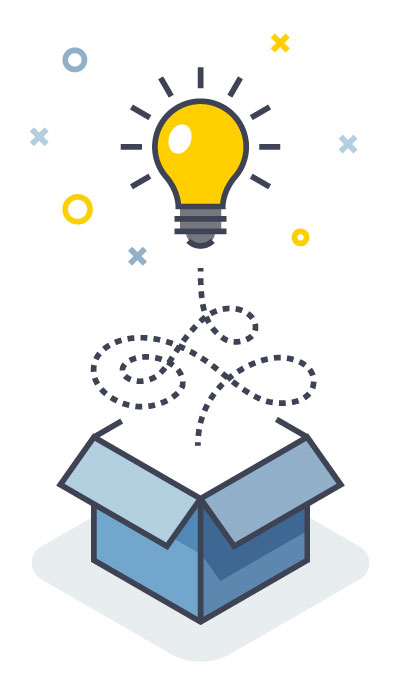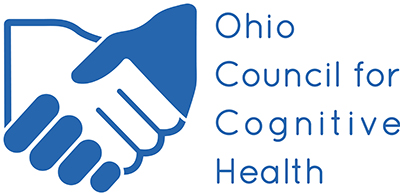 It should come as no surprise to any of you that I simply LOVE children’s books. One of my new favorites is What Do You Do with an Idea? Written by Kobi Yamada and illustrated by Mae Besom, the book tells the story of a little boy and how he struggles with an idea—one that just follows him around and won’t go away. Because the idea seemed kind of strange and different and daring, at first he walked away from it worried what others would think. But as it followed him around, he realized that there was “something magical about my idea. I had to admit, I felt better and happier when it was around.” The boy ultimately found a creative way to engage with his idea and even came to understand that “I like being with my idea. It made me feel more alive, like I could do anything. It encouraged me to think big. . . and then to think bigger.” The story inspires the reader to welcome ideas—as difficult or odd as they might seem—and to give them “some space to grow, and to see what happens next.” Engaging with ideas, it turns out, can make us feel more alive and engaged with the world around us.
It should come as no surprise to any of you that I simply LOVE children’s books. One of my new favorites is What Do You Do with an Idea? Written by Kobi Yamada and illustrated by Mae Besom, the book tells the story of a little boy and how he struggles with an idea—one that just follows him around and won’t go away. Because the idea seemed kind of strange and different and daring, at first he walked away from it worried what others would think. But as it followed him around, he realized that there was “something magical about my idea. I had to admit, I felt better and happier when it was around.” The boy ultimately found a creative way to engage with his idea and even came to understand that “I like being with my idea. It made me feel more alive, like I could do anything. It encouraged me to think big. . . and then to think bigger.” The story inspires the reader to welcome ideas—as difficult or odd as they might seem—and to give them “some space to grow, and to see what happens next.” Engaging with ideas, it turns out, can make us feel more alive and engaged with the world around us.
Recently, Rhonda Simmonds, Senior Vice President of Customer Service at Trilogy Health Services, had an idea: why not introduce the Dementia Friends Program to all 132 campuses across their four-state footprint? She thought it would be the perfect complement to the Best Friends™ Approach that serves as the foundation of their dementia services. Rhonda saw the potential the program had to enrich care and life itself on their campuses, but also the impact it could have on the larger community as well. But there was a catch. Trilogy wanted to have one program that could be embedded in and then adapted by each of its care communities. While we have the Dementia Friends site license for Ohio, the other Trilogy Health campuses are in Indiana, Michigan, and Kentucky. Indiana and Michigan have their own state leads; no one holds the site license in Kentucky.
Remember when I said that What Do You Do with an Idea? is one of my favorite new books? Actually, there are two more books in the series that follow! What Do You Do with a Chance? tells the story of some remarkable opportunities and a child who does not know just quite what to do with them: “It fluttered around me. It brushed up against me. It circled me as if it wanted to grab it. I started to reach for it, but I was unsure and pulled back.” And what did the opportunity do because the little boy wouldn’t take the chance? It flew away. And with regret the little boy continued, “I thought about it a lot. I wished I had taken my chance. I realized I had wanted it, but I still didn’t know if I had the courage.”
Along with our wonderful colleagues from the CICOA Aging and In-Home care Solutions in Indiana, and the Area Agency on Aging of Western Michigan, the Dementia Friends leads in their respective states, Marty and I realized something important: we were being given a chance to make a real difference in so many lives and communities, and we knew immediately that we had to figure out a way to create a unified program. The stoppers were many. For example, while we all abided by the guidelines developed nationally for delivering all components of the Dementia Friends program, each of us had developed live, on-line versions and in-person sessions that also met the specific needs of our individual states. And, during this challenging time of COVID-19, our respective plates were not only full, but overflowing.
Did we have the courage? Not at first, but Marty and I were spurred on by the writing on the back cover of the book, that went like this: “What do chances become? New friendships, exciting opportunities, and daring discoveries. Chances are invitations to grand adventures, tickets to unforgettable experience, and doors to whole new worlds. Chances help you see who you are, what you want, and where you want to go.” And as Kobi Yamada writes, “So what do you do with a chance? You take it . . . because it might be the start of something incredible.”
And that is exactly what is happening. Together, Trilogy, CICOA, the Area Agency on Agency of Western Michigan and OCFCH, are creating something incredible, and as our confidence grows, so does the idea, just like the boy in the book. Of course, as with every new idea, there have been exciting moments, and even some new roadblocks. Here is where we have turned to a third book by Kobi Yamada, What Do You Do with a Problem? to guide us. In it, the little boy must figure out what he should do with his problem as it gets bigger and bigger before his eyes. Should he run from it? Ignore, it? Worry about it? By the end of the book he sees problems in a new way, realizing that what is most important is having the courage to face them, and he tells the reader, “I’m not afraid of them anymore, because I know their secret. . . Every problem has an opportunity for something good. You just have to look for it.” He realizes that problems “challenge us, shape us, push us, and help us discover just how strong and brave and capable we really are.” We all decided that the problem of creating and hosting a unified program was one worth tackling, and we could never have done it without the assistance of Meredith Hanley, Director of Community Capacity Building at the National Organization of Area Agencies on Aging (N4A) the organization that leads the program nationally.
She addressed the problems head on and helped us create the first multi-state, corporate-wide Dementia Friends Initiative in the country.
This unique program is being launched in September here in Ohio and in Kentucky (both by us) and will then roll out in Indiana and Michigan. And, guess what the plan is? YEP! As part of the program we will be empowering the team at each Trilogy Campus to generate their own ideas since the hallmarks of the program will be self-discovery, local solutions, and local empowerment. Trilogy’s home office is empowering their local teams to put their toes in the water and “take a chance” with their ideas. If there are problems, our Dementia Friends Collaborative is committed to supporting each local team with the goal of helping them see for themselves how strong and brave and capable they really are!
We cannot wait to hear those magic words. . . “I have an idea!” And we welcome all of yours.
